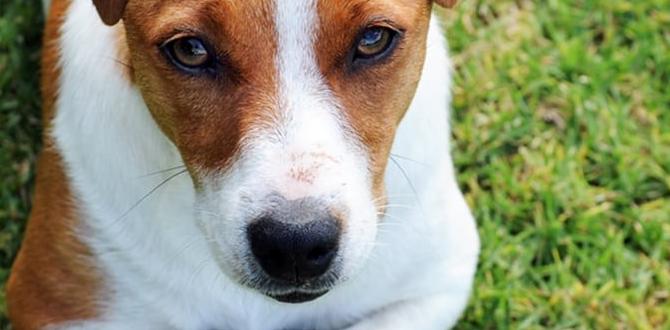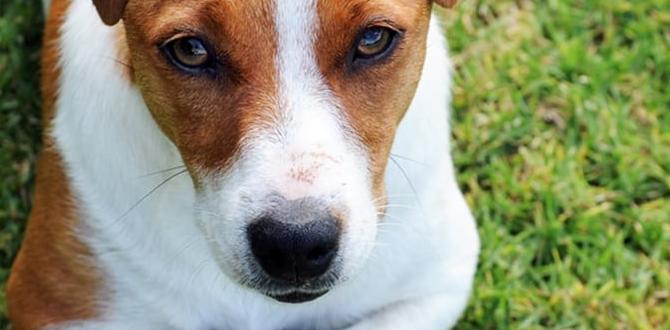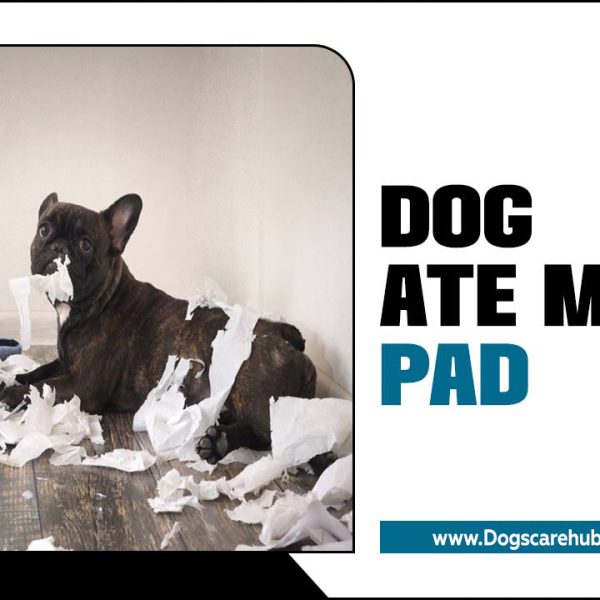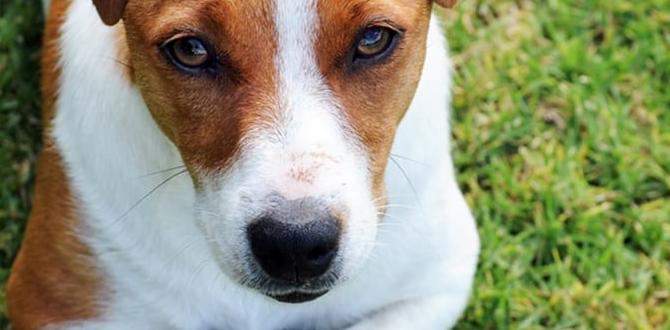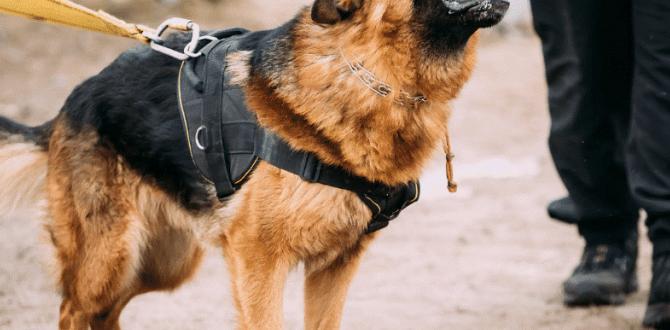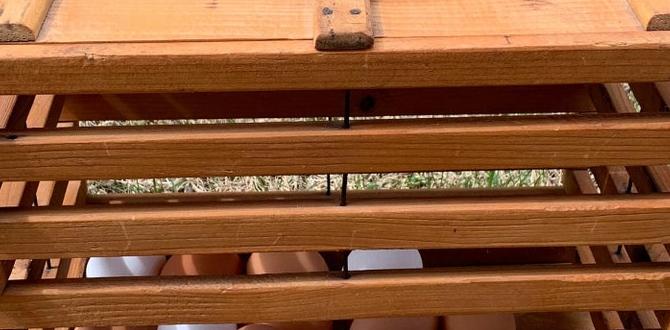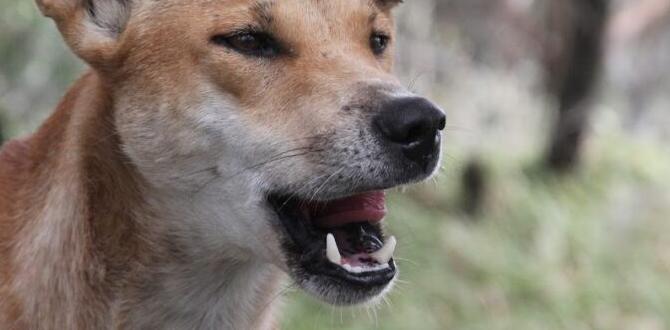Have you ever had a puppy nibble on your hands or feet? It can be both funny and a bit annoying. Puppies are curious creatures and use their mouths to explore the world around them. This playful behavior often leads them to chew on your fingers and toes. But why do they do this?
Believe it or not, puppy chewing is a normal part of their growth. Just like babies, puppies learn about their environment by tasting it. Watching a puppy try to catch your toes can make you giggle. Yet, if your little friend bites too hard, it can hurt!
In this article, we will dive into the reasons behind this behavior. We’ll also share tips on how to guide your puppy toward better chewing habits. So, are you ready to help your furry friend learn the best ways to use their mouth? Let’s get started!
Understanding Your Puppy Chewing Hands And Feet: Causes And Solutions
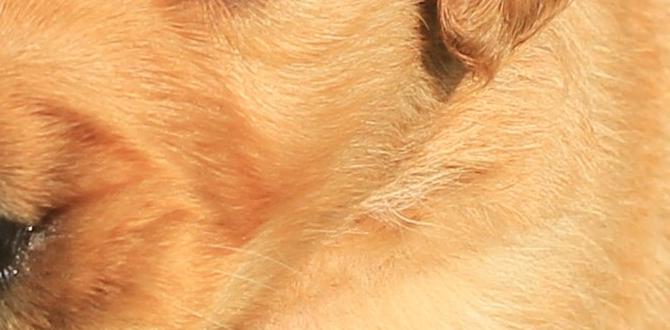
Puppy Chewing Hands and Feet
Puppies love to chew on hands and feet. This behavior is normal and often a sign of playfulness. Did you know puppies explore the world with their mouths? When they chew, it helps them learn. However, this can sometimes be painful for us! Teaching them to chew on toys instead can solve this problem. Positive reinforcement works wonders. Remember, patience is key while your puppy learns what’s okay to chew!Why Do Puppies Chew on Hands and Feet?
Explore the natural instinct of teething in puppies.. Discuss attentionseeking behavior and its impact on chewing..Puppies have a natural instinct to chew, especially when they are teething. It’s like their own version of baby teeth falling out! Chewing helps soothe their sore gums. Plus, some puppies chew on hands and feet to get attention. It’s their way of saying, “Hey, look at me!” And here’s a fun fact: Did you know that puppies can chew for up to 2 hours a day? That’s a lot of time practicing their chomping skills!
| Behavior | Reason |
|---|---|
| Teething | Soothe sore gums |
| Attention-Seeking | Want playtime or love |
Common Reasons for Chewing Behavior
Address boredom and lack of mental stimulation.. Explain separation anxiety and its correlation with chewing..Puppies are curious little creatures, always exploring the world around them. Chewing is their way of discovering things. One big reason for this habit is boredom. Without fun activities, puppies might turn your hands and feet into chew toys! Dogs need mental challenges, like games or toys, to keep them entertained.
Another reason could be separation anxiety. When they feel alone, some puppies chew as a way to cope. It helps them feel better, even if it looks silly! A table below highlights key reasons:
| Reason | Details |
|---|---|
| Boredom | Puppies need fun! Lack of play leads to chewing. |
| Separation Anxiety | Feeling lonely? Chewing offers comfort. |
Keep your silly pup busy with toys and love. It’s better than being their chew toy!
Signs Your Puppy is in Distress
Identify physical signs of discomfort or anxiety in puppies.. Discuss behavioral indicators that suggest a need for intervention..Puppies can show they are distressed in several ways. It’s important to watch their body language. Look for signs like:
- Tail between legs
- Excessive barking or whining
- Pacing or hiding
- Loss of appetite
- Chewing on hands or feet
These signs indicate your puppy needs help. If you notice them, try to calm your pup. Create a safe space for them. Offer comfort with toys or soft words.
What are common signs of distress in puppies?
Common signs include whining, growling, hiding, and not eating. These behaviors need attention. Make sure to observe your puppy closely for any changes.
Effective Approaches to Discourage Chewing
Provide positive reinforcement techniques to redirect chewing.. Recommend appropriate chew toys and alternatives for teething relief..Puppies love to nibble, especially on your hands and feet! To help them, use positive reinforcement. Praise them when they chew on toys instead. Keep their favorite toys handy, so they know what is off-limits. Also, provide a variety of chew toys. A soft rubber bone or a rope toy can do wonders for those tiny teeth. Remember, it’s all fun and games until someone loses a toe!
| Chew Toy Type | Benefits |
|---|---|
| Rubber Bones | Long-lasting and great for teething! |
| Rope Toys | Fun for tug-of-war and helps clean teeth! |
| Stuffed Toys | Soft and cuddly, perfect for snuggles! |
When to Seek Professional Help
Outline situations where behavioral consultation is necessary.. Discuss the role of veterinarians in assessing underlying issues..Some situations need a professional’s help for your puppy. If the chewing gets too strong or painful, this is key. Look for signs of stress or discomfort. A veterinarian can check if there’s a health issue behind the behavior. They might test for dental problems or anxiety. Understanding the cause helps you find the right solution.
- Persistent chewing despite redirection
- Signs of pain in paws or mouth
- Changes in behavior around people
When should I worry about my puppy chewing on my hands and feet?
It’s important to worry if your puppy’s chewing becomes extreme or painful. Look for injuries or swelling in their mouth or legs. If you notice these signs, it’s time to visit the vet.
Long-term Solutions and Training Techniques
Implement training schedules and consistency in commands.. Emphasize the importance of socialization in reducing chewing behaviors..Training a puppy requires a little patience and a lot of fun! Start by setting up a training schedule. This helps your puppy know when it’s time to learn and when it’s playtime. Be consistent with commands. If you say “no” today, don’t say “please stop” tomorrow! It’s like mixed signals in a puppy dance-off.
Socialization is key too. Introduce your puppy to new friends—both human and furry. This reduces chewing behaviors and helps them learn proper ways to play. A puppy who meets new buddies is less likely to chew on your hands and feet, turning them from chew toys into friends!
| Training Tips | Socialization Benefits |
|---|---|
| Set daily training times | Fewer chewing incidents |
| Be consistent with commands | Better behavior |
| Use positive reinforcement | Builds confidence |
FAQs About Puppy Chewing Behavior
Answer common questions pet owners have regarding chewing.. Provide expert tips and resources for further reading..Puppy chewing can leave pet owners scratching their heads! Why do pups munch on hands and feet? It’s simple: they explore the world with their mouths. Don’t worry, though; it’s normal. Experts suggest providing chew toys to redirect this behavior. If your puppy is nibbling a bit too much, consider training techniques to help. Curious about what else to do? Check out the table below for common questions and quick answers!
| Question | Answer |
|---|---|
| Is chewing normal for puppies? | Yes, it’s part of growing up! |
| How can I stop my puppy from chewing? | Provide plenty of toys and training! |
| Are there safe chew toys? | Absolutely! Look for durable ones. |
Conclusion
In conclusion, puppy chewing on hands and feet is normal behavior. Puppies explore the world through their mouths. To help them, provide toys for chewing and redirect their focus. This keeps them happy and teaches good habits. If you want to learn more about puppy training, consider reading more articles or watching videos together. You’ll enjoy it!FAQs
Why Do Puppies Tend To Chew On Hands And Feet When They Are Playing?Puppies chew on hands and feet because they are curious and like to play. Their mouths help them explore the world. They also use chewing to play and have fun. Sometimes, they are teething and need to chew on something. It’s a normal way for them to show love and energy!
What Are Some Effective Ways To Discourage Puppies From Chewing On Human Body Parts?To stop puppies from chewing on your body, give them toys to chew instead. If they bite you, say “no” firmly and walk away. This teaches them that biting ends the fun. Praise them when they chew on their toys instead. With time, they’ll learn what is okay to bite.
Is Chewing On Hands And Feet A Sign Of Teething Discomfort In Puppies?Yes, chewing on hands and feet can be a sign that your puppy is teething. When puppies lose their baby teeth and grow new ones, their gums can hurt. Chewing helps soothe their sore gums. It’s normal for puppies to chew when they’re teething, so don’t worry too much! Just make sure they have safe toys to chew on.
How Can Pet Owners Redirect Their Puppy’S Chewing Behavior Towards More Appropriate Toys?To help your puppy stop chewing on things they shouldn’t, you can give them fun toys. Choose toys that are safe and interesting for them. When you catch your puppy chewing on something wrong, gently take it away and give them a toy instead. Praise them when they chew on their toy instead. This way, they learn what’s okay to chew on!
Are There Any Specific Breeds That Are More Prone To Chew On Hands And Feet, And If So, Why?Yes, some dog breeds are more likely to chew on hands and feet. Breeds like puppies, retrievers, and terriers are known to do this. They often chew because they are curious or just playing. Sometimes, they might be bored and want attention. Giving them toys can help keep them busy!
Meet Elyse Colburn, the devoted canine companion and storyteller behind the enchanting world of “Tales, Tails, and Adventures Unleashed.” A passionate dog enthusiast with a heart full of paw prints, Elyse Colburn shares heartwarming tales and insightful adventures, celebrating the joy, loyalty, and endless antics that make every dog a true hero. Join Elyse Colburn on this tail-wagging journey, where every post is a love letter to our four-legged friends.

